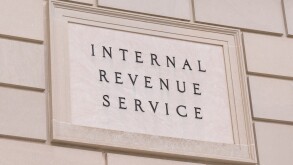On May 4 2022, the Inland Revenue Authority of Singapore (IRAS) published Advance Ruling Summary No 6/2022, relating to the tax treatment of redeemable preference shares (RPS).
Issues considered
The issues considered by the IRAS were whether:
The RPS to be subscribed to by a company, Company A, should be treated as an equity or a debt instrument; and
The distributions to be made from RPS should be treated as dividends or interest income in the hands of Company A.
Background
Company A is incorporated in Singapore. Company A plans to establish a joint venture with an overseas company. The joint venture, Company X, will be incorporated under the laws of Singapore and will be a tax resident of Singapore.
Company X will issue RPS to which Company A will subscribe.
Ruling
Upon examining the features and terms of the RPS, the IRAS ruled that for Singapore income tax purposes:
The RPS to which Company A will be subscribing is an equity instrument; and
The distributions from the RPS will be treated as dividends in the hands of Company A.
The following factors were pivotal in the IRAS’ decision to treat the RPS as equity:
The RPS fall within the definition of shares under the Companies Act 1967 (2020 revised edition);
The RPS holder(s) will be reflected in the Electronic Register of Members; and
The terms of the RPS indicate ownership interests in Company X (such as voting rights or participation in the business of Company X).
Although certain features of the RPS support the characterisation of the RPS as debt (for example, fixed dividend rate and the cumulative and compounding feature of the RPS), the IRAS did not consider these features as being conclusive. This is because the dividends paid are subject to the approval of Company X’s board of directors and dependent on the availability of profits for distribution.
Our observations
The above ruling is consistent with the guidance set out in the IRAS e-Tax Guide, Income Tax Treatment of Hybrid Instruments, where the first step in determining the characterisation of a hybrid instrument is to determine its legal form. This involves an examination of the legal rights and obligations created by the instrument. A hybrid instrument is generally characterised as equity if the legal terms of the instrument indicate ownership interests in the issuer.
In the case of Company A, since the dividend is paid by a company resident in Singapore, the dividend is exempt from tax in the hands of Company A under section 13(1)(za) of the Income Tax Act 1947 (2020 revised edition).
If the RPS had instead been characterised as a debt instrument, the distributions from the RPS would be regarded as interest income in the hands of Company A, and would be taxable unless specifically exempt from tax under the Income Tax Act 1947.
Final thoughts
RPS can be structured to confer the holder with varying degrees of management control and profit entitlement. Therefore, these shares can exhibit both debt-like and equity-like features.
As the income tax treatment differs depending on whether an instrument is regarded as a debt or an equity, an issuer or investor of a hybrid instrument should analyse the factors discussed in the IRAS e-Tax Guide (Income Tax Treatment of Hybrid Instruments) to determine the correct income tax treatment of the hybrid instrument.
Singapore does not have any hybrid mismatch rules that follow the recommendation from Action 2 of the BEPS project. However, the available guidelines and the advance rulings published aim to provide clarity on how hybrid instruments will be characterised for Singapore tax purposes.












